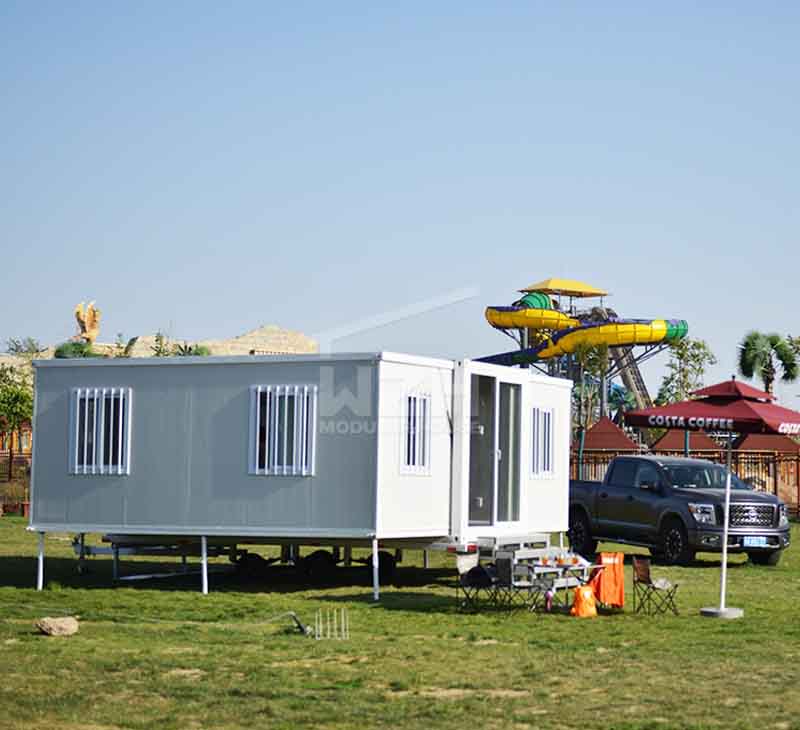Do You Need a Slab for a Container Home?
Yes, in most cases, you will need a foundation or slab for a container home. While shipping containers are inherently strong and durable, they are designed to be placed on a flat, level surface to evenly distribute the weight and provide stability. Here are some key points to consider regarding foundations for container homes:
Foundation Types: There are several common foundation types used for container homes, including:
Concrete Slab: A concrete slab foundation is a popular choice. It involves pouring a concrete pad that provides a level and stable surface for the containers. It's essential to ensure the slab is level and properly reinforced to support the weight of the containers.
Concrete Piers: Concrete piers are another option, where the containers rest on a series of individual concrete footings. Piers can be a cost-effective choice and are suitable for areas with uneven terrain.
Screw Piles or Helical Piers: These are cylindrical steel piles with helical blades that are screwed into the ground to provide support. They are ideal for sites with unstable or soft soil.
Crawl Space or Elevated Foundation: In some cases, container homes are built with a crawl space or raised foundation to allow for utilities to be installed underneath. This can be practical for flood-prone areas.
See also:
What are the benefits of expandable container house?
The Best Garden Hose and Hose Reel
Your Complete Guide To Tiny Houses | :Different
What Are the Advantages of modular homes shipping containers?
Why is fiberglass mesh the best choice for waterproofing?
Traditional, Standard Mesh, Reinforcing Mesh
Effective Commercial Signage Lighting Options for Success
Local Building Codes: Always check with your local building authorities and adhere to building codes and regulations regarding foundations for container homes. Regulations can vary from one location to another, and compliance is crucial to ensure safety and legality.
Site Assessment: Conduct a thorough site assessment to determine the appropriate foundation type for your specific location. Factors to consider include soil conditions, slope, climate, and local requirements.
Engineering and Structural Considerations: It's essential to engage a structural engineer or architect experienced in container home construction to assess the structural integrity of your foundation design. They can ensure it can withstand the weight of the containers and the structural modifications made to the containers themselves.
Insulation and Moisture Control: Regardless of the foundation type, it's vital to address insulation and moisture control. Proper insulation helps maintain a comfortable interior temperature, while moisture control prevents issues like mold and rust.
Budget: Different foundation types come with varying costs. Consider your budget when selecting the foundation for your container home. While some options may be more affordable initially, others may offer long-term benefits such as energy efficiency.
In summary, a foundation or slab is typically necessary for a container home to ensure stability, levelness, and compliance with building codes. The choice of foundation type will depend on your location, site conditions, budget, and design preferences. Consulting with experts in container home construction and local building authorities is essential to make informed decisions and ensure the successful construction of your container home.
Things to Consider When Selecting Baling Wire
What Is Precision Metal Stamping?
Lighten Up Your Design: The Benefits of Glass Curtain ...
how to find the best external pipe clamp for your pipeline ...
How to choose the right elbow pipe fittings?
Key Applications of OEM Black Annealed Wire Rolls
Understanding Cable De Acero De 7 Hilos: Uses and Benefits



